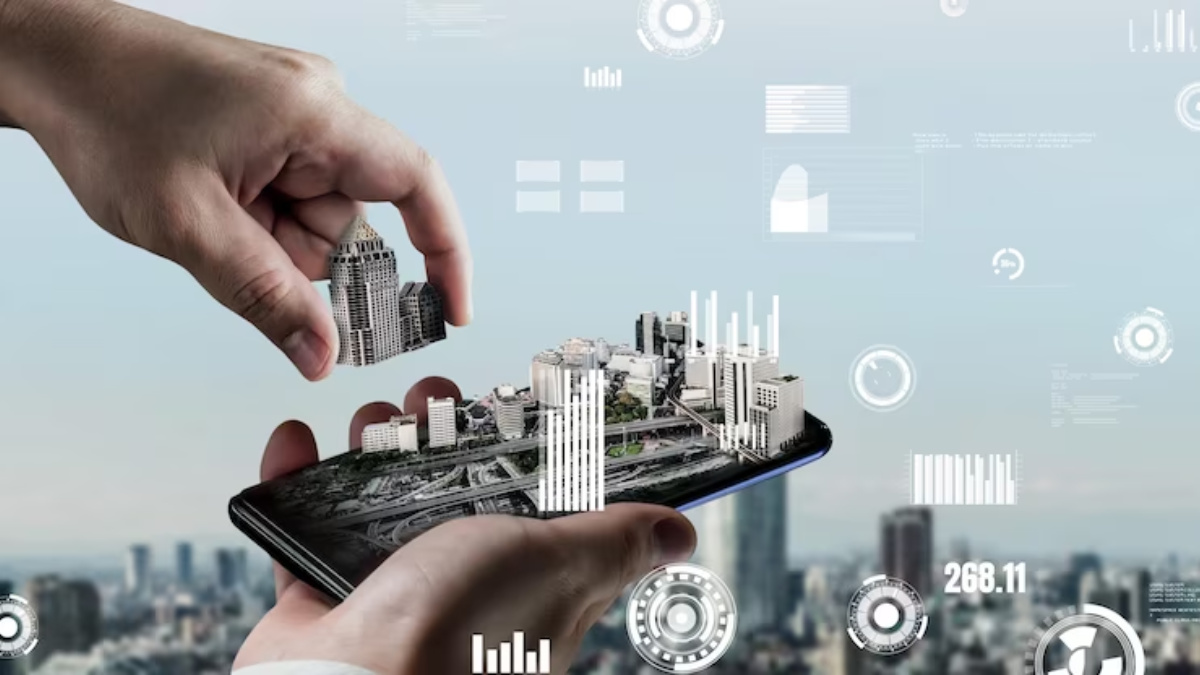Like other sectors, technology has also embraced the real estate sector. Surprising as it might be, it is also the last sector to integrate with digitalization. Over the past few years, the real estate sector has seen a remarkable tech transformation. A report by Statista suggests the real estate market will grow by USD 729.40 billion by 2028.
To thrive in this race – real estate businesses need to follow real estate technology trends. Virtual reality, artificial intelligence, big data analytics, selling and buying management software, etc., are all part of this transformation. Real estate companies are going all the way out to integrate with tech. Let’s discuss relevant tech trends and how they will impact the real estate sector.
Machine Learning and Artificial Intelligence
The impact of AI and ML has been tremendous in every sector. Why should real estate be left behind? AI is one of the best tech trends to integrate in real estate. According to an estimate, most real estate companies use AI technology for activities – like scheduling (79%) and time sheets (78%).
Real estate brokers are utilizing AI and ML for property searches and recommendations. AI algorithms sift through data based on location, customer taste, and property features to deliver customized property suggestions.
Moreover, customers can interact with AI chatbots to get answers to property-related questions. With intelligent automation, homebuyers can make better property-related decisions.

Virtual Reality
Millennials and the Gen-Z generation understand virtual concepts as the tech provides interactive experiences. Virtual reality is a key trend that makes selling and buying property simple. How? Well, the technology gives potential buyers a virtual tour of the property.
With virtual tours, your clients can view the property from remote areas. The best part is that with the deployment of VR, the real estate sector has entered a new metaverse tech with virtual concepts.
Most investors and buyers – look through the property and finalize the deal without an in-person meeting. Isn’t that great news for people staying aboard and wanting to buy a property in India?
Mobile Apps
Can you imagine a world without mobile apps? From paying bills to shopping online, you do it all through apps. Using an app to find real estate property has become common. With the help of these apps, buyers can search and buy or sell properties. Ideally, you can meet real estate brokers to invest in a property.
Plus, searching for a property through an application can save transportation costs and time. Real estate apps offer different features with the help of technologies like big data and business intelligence. Are you using a real estate app for property searches?
Internet of Things
IoT (Internet of Things) digitally connects apps and devices using cloud technology to send and receive valuable information. Integrating with this technology can bring a change in – how you work. Plus, you can use the tech for its uniqueness and to enhance the client experience. The Internet of Things tech uses smart home device sensors that alert property owners about property issues.
Moreover, the tech trend can help in energy efficiency and sustainability. Realtors and brokers using the technology can save money and provide an enriching experience to clients.
Hyper Personalized Content
Most E-commerce websites use hyper-personalized content to lure shoppers. You can create curated content for potential clients with predictive data and AI. Didn’t get the deal?
If a home buyer wants a property, you can use the technology for property recommendations and similar deals. Plus, database and predictive analysis enable real estate brokers to acknowledge their clients better.
With the help of technology, brokers and agencies can design targeted content for specific audiences. Also, agents can use social media platforms like Facebook and Instagram to conduct virtual property tours.
Blockchain

The size of professionally managed global real estate investment has increased over the last few years. Today, the real estate market works on an independent network with opacity and transactional friction between different systems.
Blockchain has been in the news for its openness and security in real estate deals. It eliminates the need for a third party and increases efficiency, allowing for secure property documentation ownership and transaction history.
You can streamline property transactions with the technology. Blockchain provides practical solutions for real estate assets tokenization and global asset distribution.
Big Data Analytics
The world relies on data today, and every sector leverages insightful data to make business decisions. With massive databases, you can understand market trends, investment opportunities, and consumer preferences.
Developers can foresee future trends using special predictive analytics by analyzing past data. Moreover, real estate companies can make informed marketing and investment decisions.
Data analytics allow realtors to create advanced search criteria based on location and demographics. Big data analytics can change the way real estate companies make decisions.
Tech going beyond lead generation
Most real estate brokers use technology for lead generation. But you can use tech beyond the lead generation aspect. With the help of big data and analytics, you can match customers’ requirements with the available options.
Moreover, tracking data on the construction project’s progress will be seamless. It will help you get complete sales information. With the help of technology, obtaining and feeding bid information is seamless. So, there are many ways by which brokers can win and retain customers on the go.
Are you Tech-ready?

You can leverage technology in the best possible way and change how the properties can be bought, sold, and managed. Improved customer experience and market insights by tech development are substantial. The only bottleneck is integration. If integrated properly, the above technology can revolutionize the real estate sector.
Your potential customers would love virtual property tours and automated valuation models. Lastly, these technologies can help change real estate activities, benefiting sellers and home buyers. The future of tech in real estate looks bright, and leveraging the tech based on need is significant.
